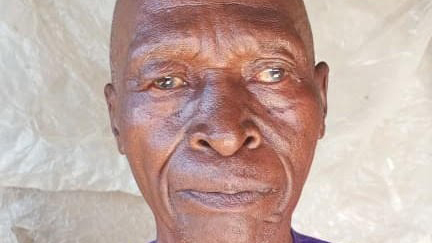Emir of Kano and former Governor of the Central Bank of Nigeria (CBN), Muhammadu Sanusi II, has warned ministers and presidential aides against turning into praise singers rather than offering President Bola Tinubu honest advice that could help salvage the nation’s ailing economy.
Sanusi gave the charge on Tuesday in Abuja at the Oxford Global Think Tank Leadership Conference and Book Launch, where he joined other notable Nigerians to examine Nigeria’s economic policies and governance challenges.
Speaking on the need for integrity and courage in public service, the Emir lamented that sycophancy has worsened Nigeria’s leadership crisis, as those who speak the truth are often branded enemies of the state.
He decried the growing culture of excessive praise for political leaders during official functions, warning that it stifles honest feedback and undermines good governance.
He said: “Our leaders listen, but only to those who tell them what they want to hear. Nigeria has too many sycophants in government. Those who speak the truth are seen as enemies of the state.
“You sit in a meeting, and the President is there. The first thing people say is, ‘Mr. President, I want to thank you for your great leadership. God has blessed Nigeria by making you our leader. By the time they finish laying that foundation, it is their advice that the President accepts.
“But when you tell the truth and point out what is wrong, they say you are the enemy. That is why people like Atedo Peterside and I are always seen as enemies of the state, because people don’t like hearing the truth.”
Sanusi urged ministers and presidential aides to restore integrity to public service by speaking truth to power, stressing that blind loyalty and flattery have been major obstacles to Nigeria’s progress.
“Those who work with the President must understand that it is not in their benefit to turn themselves into praise singers. You disgrace yourself and the office you hold when you do that.”
Turning to the economy, Sanusi commended the Tinubu administration for removing fuel subsidy and unifying exchange rates, describing both as “painful but necessary steps.”
He, however, cautioned that the reforms would fail unless matched with fiscal discipline and transparent spending.
“If you stop paying subsidies but continue borrowing more, it means you’ve filled one hole only to dig another. The real challenge now is the quality of government spending and the management of the revenues saved,” he said.
The former CBN governor, who served between 2009 and 2014, said Nigeria’s current economic woes were the consequence of years of policy inconsistency and populist politics, recalling that the same politicians who opposed subsidy removal in 2012 are now implementing it.
“In 2012, we warned that the subsidy was unsustainable, but politics took over. “Now the same people who led protests against it have inherited the problem and had no choice but to do the right thing.”
He praised the professionalism of the current economic team, including Finance Minister Wale Edun and CBN Governor Yemi Cardoso, for the steps taken to stabilise inflation and reduce exchange rate volatility, but insisted that government waste must be urgently curtailed.
“Why do we need 48 ministers? Why do we need long convoys of vehicles and endless travel expenses? We cannot preach sacrifice to the people while living in luxury at the top,” he said.
In his remarks, Peterside, founder of Stanbic IBTC Bank, echoed Sanusi’s call for fiscal responsibility, saying government must demonstrate that savings from subsidy removal are being used to uplift ordinary Nigerians.
“It’s not true that pain automatically brings gain. Gain only follows pain if the government spends wisely, eliminates waste and supports the poor,” he said.






